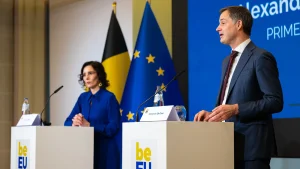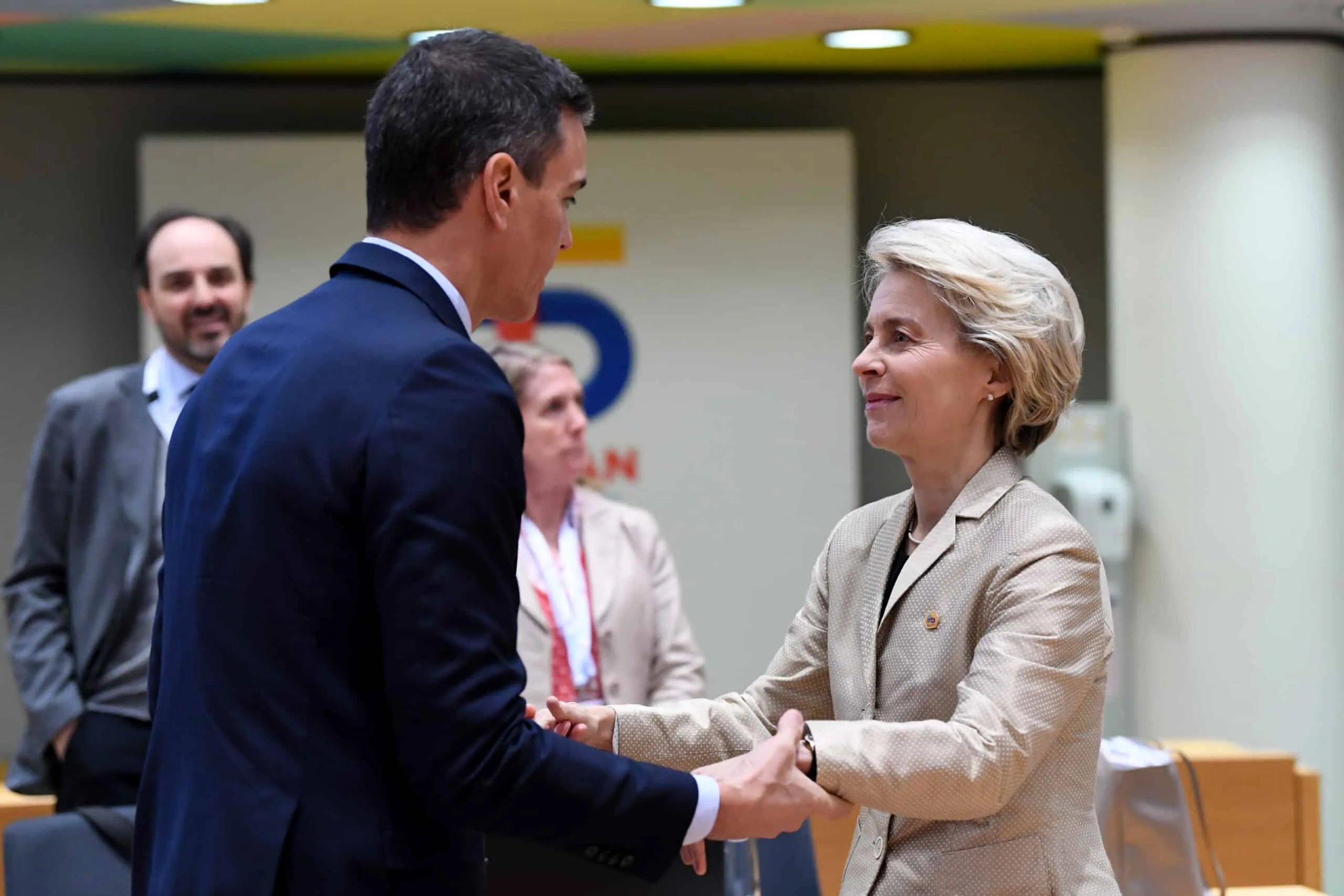Brussels – Stability Pact, pact on migration and asylum and Europe’s first artificial intelligence law. Despite a turbulent start disrupted by elections, Spain will close the year and its six-month presidency at the helm of the EU next Dec. 31 having brought more than 50 political agreements and also many crucial dossiers for the Continent’s economic competitiveness to a successful conclusion. Many of them came on the wire just before the institutions’ Christmas break. From reindustrialisation to energy transition, from social and economic justice to Union unity on climate dossiers. Four in all are the priorities that since first of July until December 31 have marked the Spanish presidency, leading the EU for the fifth time after 1989, 1995, 2002, and 2010.
More than 50 political agreements have been reached, with some 150 files to be completed under the incoming Belgian presidency, which will be tasked with bringing the Brussels institutions to the European elections scheduled in the twenty-seven countries on June 6-9. In terms of reindustrialization and energy transition, Madrid closed in record time two of the three pillars of the Green Deal Industrial Plan: the first Critical Raw Materials Act and the EU electricity market reform. Progress has also been made on the third pillar, namely the Net-Zero Industry Act, on which the Belgian presidency will now initiate the three-way negotiation between parliament and the council (mediated by the European Commission) and try to reach an agreement.
Last, but perhaps most significant, are the two agreements on the reform of the Stability Pact (on which the economy and finance ministers reached an agreement last December 20) and on key policy elements of the five key regulations that will reform the EU legal framework on asylum and migration (the European Commission’s proposal dates back to September 2020, and a few optimists thought an agreement could be reached before the end of the legislative term). After some 36 hours of negotiations, parliament and council negotiators also reached an agreement on December 8 on the first legislation in the world governing developments and uses of artificial intelligence. But there is no doubt that in addition to the numerous legislative dossiers brought to the finish line, Madrid’s leadership will be remembered for the historic European summit in December that led the Twenty-seven to say yes to the start of Ukraine’s accession negotiations, which could represent a turning point for the EU’s enlargement policy. While we will have to wait for the next legislature to see what the consequences of this opening will be, there are several dossiers that the current Spanish presidency leaves open as a “legacy” to the next presidency of Belgium, which will take over the reins of the EU from 1 January until 30 June for the thirteenth time since the European project was born.
Women, budget and EU reform: what’s left to the Belgian EU presidency
The Belgian presidency “will work to better protect European citizens, strengthen our cooperation and prepare for our shared future. It will focus on six thematic areas and will pay particular attention to maintaining our firm support for Ukraine,” the Belgian government says on the presidency’s website, pointing out that the six priorities of the six-month term will be “defending the rule of law, democracy, and unity”; “strengthening our competitiveness”; “pursuing a green and just transition”; “strengthening our social and health agenda”; “protecting people and borders”, and “promoting a global Europe.”

With elections just around the corner next June and more than 150 dossiers still open on the table, Belgium has promised that it will try to finalize as many of them as possible. The first part of the year will likely be devoted in particular to finding agreement on the mid-term review of the 2021-2027 multi-year budget, on which the heads of state and government failed in their attempt at the last summit in December. But not only that.
Among several legislative files of political significance to be completed by the current commission (the first with a woman at its helm) is new EU legislation on violence against women and the introduction a harmonized definition of the crime of rape. The Commission’s proposal has been at a standstill since this summer at the trilogues (the phase of interinstitutional negotiations), because the positions adopted by the EU Council and the European Parliament are too far apart. The Belgian presidency will also be tasked with making progress on the EU treaty reform, so that it goes hand in hand with the enlargement process. Unsurprisingly, EU reforms are a major theme of the upcoming presidency for a future-ready Europe. “We need to reform the EU, its policies, budgets, and institutions, in view of the next possible enlargement,” reads the website of the incoming presidency.
English version by the Translation Service of Withub

![Il consiglio Ecofin straordinario, in videoconferenza, trova l'accordo per la riforma del patto di stabilità [23 dicembre 2023. Foto: European Council]](https://www.eunews.it/wp-content/uploads/2023/12/ecofin-231220-350x250.png.webp)




